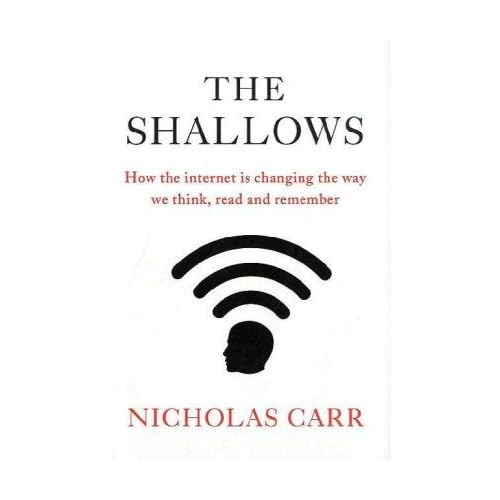
After having recently read The Shallows by Nicholas Carr, I decided to do an experiment with my students. According to the research described in the book, reading comprehension is highest with traditional paper (book, article etc.).
I have been trying to minimize my environmental impact both in my personal and professional life for many years. Since joining ISB, I have been able to make great strides towards reducing my/my students’ paper consumption because of the availability of electronic texts. I post articles on my class blog for students to download or read online.
Knowing that reading is often not enough to come to a deep understanding, I teach my students to use tools like the highlighting and note-taking functions of Preview (on a Mac), diigo.com and coda notes (to name just a few). These allow users to make notes, highlight and mark up webpages/texts just as they would with paper and pen.
Like most people, and like most of my students, most of my reading for information happens on a computer these days. I read the news, read scholarly articles for my Master’s research project and find class texts online. I feel like my comprehension is excellent. So, when I read The Shallows and the research it references about the difference in comprehension with paper reading, I was truly skeptical. I believed, if anything, that the difference came down to individual reading/learning styles and decided to test it myself.
I chose three different articles that are about the level that I would normally assign for current events, two of them from the New York Times. For Grade 6, this can be a fairly challenging reading level. Each article was followed by five questions related to comprehension of the key information from the article. The subject of each article was familiar but the information was ‘new’ to the students. I did the experiment with both of my Humanities classes – about 40 students.
For article one, students read entirely online. They could take notes on paper or using an online tool.
For article two, students read a pdf version stripped of all ads (using the ‘READER’ function of Safari). They could then take notes on paper or using Preview (which allows them to take notes and highlight the text easily).
For article three, students received a paper copy of the article and could write on it if they needed to. If I am being honest, this article was in fact the longest and most complex.
The results?
For the first article (reading online), the class average was 68%, a D+.
For the second article (a pdf version that allowed note-taking), the class average was 72%, a C-.
For the final article (a paper copy), the class average was 89, a B+.
I shared this information with my students and I am sharing it now because we all need to know how we are most successful. So far, I am not printing all new readings for my students, but I am encouraging them to print them if they need to. I make pdfs available for all readings and encourage students to print them if they find them difficult.
I was skeptical and am still not entirely convinced, but these results are pretty compelling. If it were just my little experiment giving these results, I would not take it as seriously, but my results reflect the result of large academic studies. The results are too important to ignore them. I still want to go paperless, but I believe that we should all know that how we do things has an impact on how successful we are. I want my students to think of that as well.
I didn't have to read the book to know that my comprehension of text online would be lower. But now that you have written about it and even tried your own experiment, I am even more curious. Why? What is it about online text that makes it more difficult to grasp and understand?
ReplyDeleteI have recently started breaking up my long admissions emails to parents into several smaller emails and using more bullets and bold text with good results.
Do you still have the book? Would love to read it. Did you read the book in paper format or online format? If you didn't read the paper version, how can I be sure you got the author's point :)